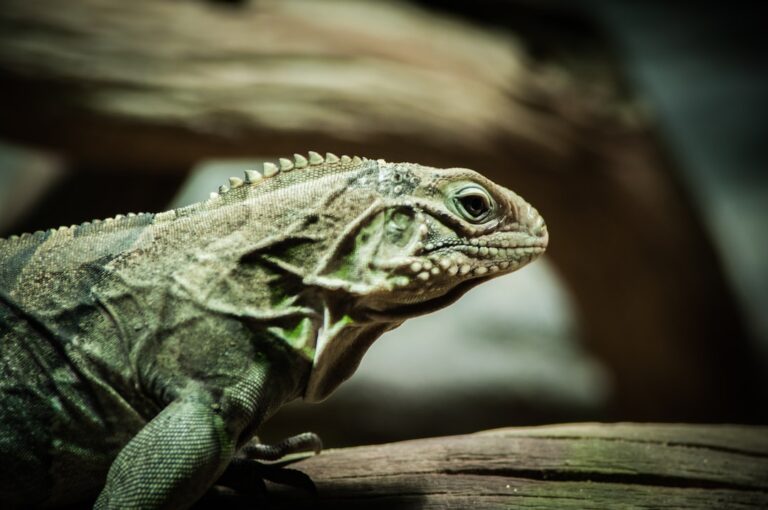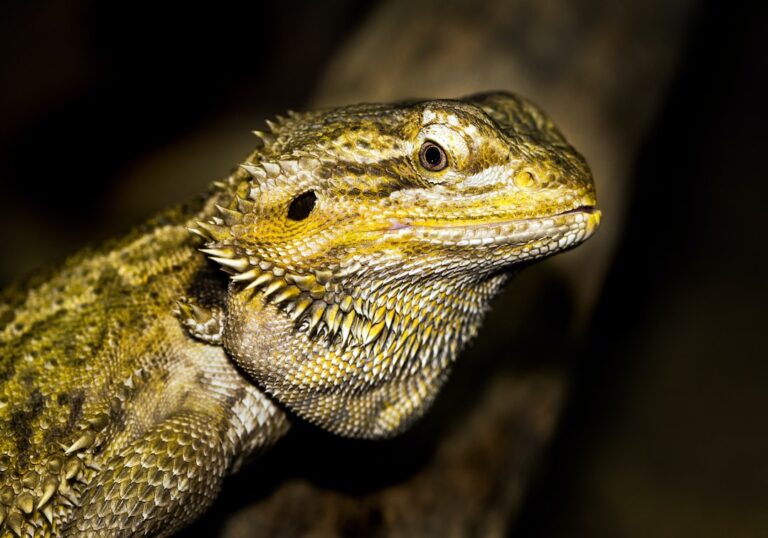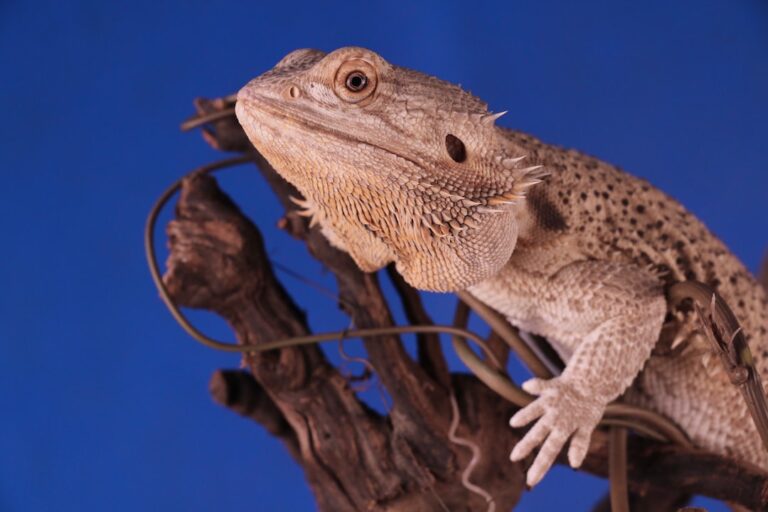Are Bearded Dragons Bothered by Noise?
Bearded dragons are popular reptile pets known for their unique appearance and docile nature. These reptiles are native to Australia and have become increasingly popular as pets due to their low maintenance requirements and friendly demeanor. However, one aspect of their care that is often overlooked is their sensitivity to noise.
Bearded dragons have a unique anatomy that allows them to hear a wide range of frequencies. Their ears are located on the sides of their heads, just behind their eyes. These ears are covered by a thin layer of skin, which helps protect them from damage. Despite their small size, bearded dragon ears are highly sensitive and can pick up on even the slightest sounds.
Table of Contents
Understanding the Hearing Capabilities of Bearded Dragons
The hearing range of bearded dragons is quite impressive. They can hear frequencies ranging from 200 Hz to 8 kHz, which is similar to the hearing range of humans. However, their sensitivity to certain frequencies may vary depending on the individual dragon.
Bearded dragons have a unique ability to detect low-frequency sounds, such as the rumble of thunder or the vibrations caused by approaching predators. This sensitivity to low-frequency sounds is an important survival mechanism for these reptiles in the wild.
The Impact of Loud Noises on Bearded Dragons
Loud noises can have a significant impact on the well-being of bearded dragons. These reptiles are highly sensitive to sudden and loud sounds, which can cause them stress and anxiety. Prolonged exposure to loud noises can also lead to long-term health issues.
When bearded dragons are exposed to loud noises, they may exhibit signs of distress such as hiding, pacing, or even attempting to escape from their enclosure. These behavioral changes are a clear indication that the noise is causing them discomfort.
In addition to behavioral changes, loud noises can also have negative effects on the physical health of bearded dragons. The stress caused by loud noises can weaken their immune system, making them more susceptible to illnesses and infections. It can also disrupt their sleep patterns, leading to fatigue and a weakened overall condition.
Common Noises That Can Disturb Bearded Dragons
There are several common noises that can disturb bearded dragons and cause them stress. These include:
1. Loud music or television: Bearded dragons have a keen sense of hearing and can be easily overwhelmed by loud music or television noise. The constant barrage of sound can be highly stressful for these reptiles.
2. Construction or renovation noise: The loud banging and drilling sounds associated with construction or renovation projects can be extremely distressing for bearded dragons. These sudden and unpredictable noises can cause them to become anxious and agitated.
3. Household appliances: Everyday household appliances such as vacuum cleaners, blenders, or hairdryers can produce loud noises that can startle and stress out bearded dragons.
4. Fireworks or thunderstorms: The loud booms and cracks associated with fireworks or thunderstorms can be particularly frightening for bearded dragons. These sudden and unpredictable noises can cause them to become extremely anxious and fearful.
How Noise Affects Bearded Dragon Behavior and Health
The impact of noise on bearded dragon behavior and health is significant. Loud noises can cause a range of behavioral changes in these reptiles, including increased aggression, decreased appetite, and decreased activity levels.
Bearded dragons may become more aggressive when exposed to loud noises as a result of feeling threatened or stressed. This aggression can manifest in various ways, such as biting, tail whipping, or puffing up their bodies to appear larger.
In addition to behavioral changes, loud noises can also have negative effects on the physical health of bearded dragons. The stress caused by loud noises can lead to a weakened immune system, making them more susceptible to illnesses and infections. It can also disrupt their sleep patterns, leading to fatigue and a weakened overall condition.
How to Create a Quiet Environment for Bearded Dragons
Creating a quiet environment for bearded dragons is essential for their well-being. Here are some tips for creating a peaceful habitat:
1. Choose a quiet location: Place the bearded dragon enclosure in a quiet area of your home, away from high-traffic areas or noisy appliances.
2. Use soundproofing materials: Consider using soundproofing materials such as acoustic foam or curtains to reduce noise levels in the room where the bearded dragon enclosure is located.
3. Minimize external noise: Close windows and doors to minimize external noise from traffic, construction, or other sources.
4. Provide hiding spots: Bearded dragons feel more secure when they have hiding spots in their enclosure. Provide plenty of hiding spots such as caves or logs where they can retreat when they feel stressed.
Tips for Minimizing Noise in Bearded Dragon Habitats
In addition to creating a quiet environment, there are several other tips for minimizing noise in bearded dragon habitats:
1. Use a quiet filter: Choose a filter for the bearded dragon enclosure that operates quietly to minimize noise levels.
2. Avoid loud toys or accessories: Be mindful of the toys and accessories you choose for your bearded dragon’s enclosure. Avoid toys that make loud noises or have moving parts that can create unnecessary noise.
3. Keep the enclosure clean: Regularly clean the bearded dragon enclosure to minimize noise caused by loose substrate or debris.
4. Use soft bedding: Use soft bedding materials such as reptile carpet or paper towels instead of loose substrate, which can create noise when the bearded dragon moves around.
The Role of Music and Sound in Bearded Dragon Care
While loud noises can be detrimental to bearded dragons, certain types of music and sound can have a positive impact on their well-being. Soft, calming music or nature sounds can help create a soothing environment for bearded dragons.
Playing soft music or nature sounds in the background can help mask external noises and create a more peaceful atmosphere for your bearded dragon. This can help reduce their stress levels and promote relaxation.
It’s important to note that not all bearded dragons will respond positively to music or sound. Some individuals may find it stressful or overwhelming. It’s essential to observe your bearded dragon’s behavior and adjust the volume or type of music accordingly.
How to Train Bearded Dragons to Tolerate Noise
Training bearded dragons to tolerate noise is a gradual process that requires patience and consistency. Here are some tips for training your bearded dragon to tolerate noise:
1. Start with low-level noise: Begin by exposing your bearded dragon to low-level noise, such as soft music or nature sounds. Gradually increase the volume over time as they become more comfortable.
2. Use positive reinforcement: Reward your bearded dragon with treats or praise when they remain calm in the presence of noise. This will help them associate noise with positive experiences.
3. Gradually expose them to louder noises: Once your bearded dragon is comfortable with low-level noise, gradually expose them to louder noises such as household appliances or television at a low volume. Increase the volume gradually over time as they become more tolerant.
4. Monitor their behavior: Observe your bearded dragon’s behavior closely during the training process. If they show signs of stress or discomfort, reduce the volume or intensity of the noise and try again later.
Maintaining a Peaceful Environment for Happy Bearded Dragons
In conclusion, bearded dragons are sensitive to noise and can experience stress and anxiety when exposed to loud or sudden sounds. It’s important for their well-being to create a quiet environment that minimizes external noise and provides a sense of security.
By understanding the hearing capabilities of bearded dragons and the potential negative effects of loud noises, you can take steps to create a peaceful habitat for your pet. This includes choosing a quiet location, using soundproofing materials, and providing hiding spots in their enclosure.
Additionally, training your bearded dragon to tolerate noise can help them become more resilient and less reactive to loud sounds. By gradually exposing them to noise and using positive reinforcement, you can help them develop a tolerance for various sounds.
Maintaining a peaceful environment for your bearded dragon is essential for their overall health and well-being. By minimizing noise and creating a calm atmosphere, you can ensure that your pet is happy and thriving.
If you’re interested in reptile behavior, you might also want to check out this article on why do iguanas bob their heads. It explores the fascinating head-bobbing behavior of iguanas and provides insights into its possible meanings and functions. Understanding these unique behaviors can help reptile owners better care for their pets and create a stimulating environment for them.






